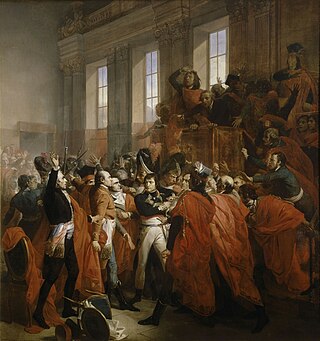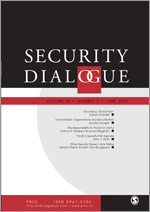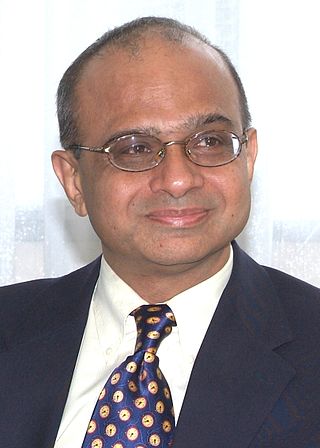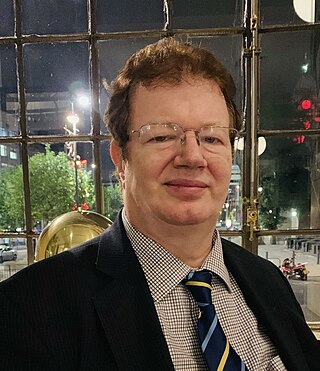
The Peace Research Institute Oslo is a private research institution in peace and conflict studies, based in Oslo, Norway, with around 100 employees. It was founded in 1959 by a group of Norwegian researchers led by Johan Galtung, who was also the institute's first director (1959–1969). It publishes the Journal of Peace Research, also founded by Johan Galtung.
Development studies is an interdisciplinary branch of social science. Development studies is offered as a specialized master's degree in a number of reputed universities around the world. It has grown in popularity as a subject of study since the early 1990s, and has been most widely taught and researched in developing countries and countries with a colonial history, such as the UK, where the discipline originated. Students of development studies often choose careers in international organisations such as the United Nations, World Bank, non-governmental organisations (NGOs), media and journalism houses, private sector development consultancy firms, corporate social responsibility (CSR) bodies and research centers.

Stockholm International Peace Research Institute (SIPRI) is an international institute based in Stockholm. It was founded in 1966 and provides data, analysis and recommendations for armed conflict, military expenditure and arms trade as well as disarmament and arms control. The research is based on open sources and is directed to decision-makers, researchers, media and the interested public.

Thomas Homer-Dixon is a Canadian political scientist and author who researches threats to global security. He is the founder and Executive Director of the Cascade Institute at Royal Roads University in Victoria, British Columbia. He is the author of seven books, the most recent being Commanding Hope: The Power We Have to Renew a World in Peril.

Peace and conflict studies or conflict analysis and resolution is a social science field that identifies and analyzes violent and nonviolent behaviors as well as the structural mechanisms attending conflicts, with a view towards understanding those processes which lead to a more desirable human condition. A variation on this, peace studies (irenology), is an interdisciplinary effort aiming at the prevention, de-escalation, and solution of conflicts by peaceful means, thereby seeking "victory" for all parties involved in the conflict.
United Nations Security Council Resolution 1325 (S/RES/1325), on women, peace, and security, was adopted unanimously by the UN Security Council on 31 October 2000, after recalling resolutions 1261 (1999), 1265 (1999), 1296 (2000), and 1314 (2000). The resolution acknowledged the disproportionate and unique impact of armed conflict on women and girls. It calls for the adoption of a gender perspective to consider the special needs of women and girls during conflict, repatriation and resettlement, rehabilitation, reintegration, and post-conflict reconstruction.
Nafeez Mosaddeq Ahmed is a British investigative journalist, author and academic. He is editor of the crowdfunded investigative journalism platform INSURGE intelligence. He is a former environment blogger for The Guardian from March 2013 to July 2014. From 2014 to 2017, Ahmed was a weekly columnist for Middle East Eye, the London-based news portal founded by ex-Guardian writer David Hearst. He is 'System Shift' columnist at Vice covering issues around global systems crises and solutions. Ahmed is now Special Investigations Reporter at Byline Times.

Thazha Varkey Paul is an Indo-Canadian political scientist. He is a James McGill professor of International Relations in the department of Political Science at McGill University. Paul specializes in International Relations, especially international security, regional security and South Asia. He served as the president of the International Studies Association (ISA) during 2016–2017, and served as the founding director of the McGill University – Université de Montreal Centre for International Peace and Security Studies (CIPSS).
Pervaiz Iqbal Cheema was a Pakistani political scientist, cricketer, and a professor of International Relations and was last working as Dean, Faculty of Contemporary Studies, National Defence University, Islamabad - Pakistan.
The Josef Korbel School of International Studies at the University of Denver is a professional school of international affairs offering undergraduate, graduate, and doctoral degrees. It is named in honor of the founding dean, Josef Korbel, father of former U.S. Secretary of State Madeleine Albright.

A coup d'état, or simply a coup, is typically an illegal and overt attempt by a military organization or other government elites to unseat an incumbent leadership. A self-coup is when a leader, having come to power through legal means, tries to stay in power through illegal means.

Simon Chesterman is an Australian legal academic and writer who is currently a vice provost at the National University of Singapore and dean of the NUS College. He was the dean of NUS Faculty of Law from 2012 to 2022. He is also senior director of AI governance at AI Singapore, editor of the Asian Journal of International Law and co-president of the Law Schools Global League.

Security Dialogue is a peer-reviewed academic journal that publishes scholarly articles which combine contemporary theoretical analysis with challenges to public policy across a wide-ranging field of security studies. The journal is owned by the Peace Research Institute Oslo which also hosts the editorial office. As of 1 October 2015 Mark B. Salter is the editor-in-chief. Marit Moe-Pryce has been the managing editor of the journal since 2004. Current associate editors are Emily Gilbert, Jairus V. Grove, Jana Hönke, Doerthe Rosenow, Anna Stavrianakis, and Maria Stern.
The Fletcher School of Law and Diplomacy is the graduate school of international affairs of Tufts University, in Medford, Massachusetts. Fletcher is one of America's oldest graduate schools of international relations. As of 2017, the student body numbered around 230, of whom 36 percent were international students from 70 countries, and around a quarter were U.S. minorities.
The Institute for Security Studies, also known as ISS or ISS Africa, described itself as follows: "an African organisation which aims to enhance human security on the continent. It does independent and authoritative research, provides expert policy analysis and advice, and delivers practical training and technical assistance." Their areas of research include transnational crimes, migration, maritime security, development, peacekeeping, peacebuilding, crime prevention, criminal justice, conflict analysis and governance. It is the largest independent research institute in Africa dealing with human security and is headquartered in Pretoria, South Africa, with offices in Kenya, Ethiopia and Senegal. In 2019, it was ranked 116th by the Global Go To Think Tanks Report and 55th among think tanks outside the United States.

Climate security is a political and policy framework that looks at the impacts of climate on security. Climate security often refers to the national and international security risks induced, directly or indirectly, by changes in climate patterns. It is a concept that summons the idea that climate-related change amplifies existing risks in society that endangers the security of humans, ecosystems, economy, infrastructure and societies. Climate-related security risks have far-reaching implications for the way the world manages peace and security. Climate actions to adapt and mitigate impacts can also have a negative effect on human security if mishandled.

Florian Krampe is a German/Swedish political scientist and international relations scholar at the Stockholm International Peace Research Institute (SIPRI).[2] He is best known for his work on climate-related security risks, Environmental Peacebuilding, and the governance of natural resources after armed conflict. He also serves as Affiliated Researcher at the Research School for International Water Cooperation at the Department of Peace and Conflict Research at Uppsala University. Between 2020 and 2022 Krampe was cross appointed Specially Appointed Professor at the Network for Education and Research on Peace and Sustainability at Hiroshima University, Japan.

Brahma Chellaney is an Indian geostrategist, columnist and author on geostrategic affairs. He is a professor of strategic studies at the Centre for Policy Research in New Delhi. He was a member of India's National Security Advisory Board and an author of its draft nuclear doctrine. He is a regular columnist for Project Syndicate, and writes for numerous other international publications. He is the author of nine books on geostrategic affairs, of which Asian Juggernaut was a best-seller and Water: Asia's New Battleground received the $20,000 Bernard Schwartz Award.

Christoph Hartmut Bluth is a professor of international relations and security at the University of Bradford.











